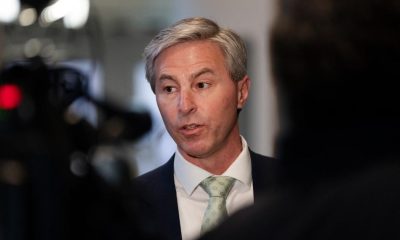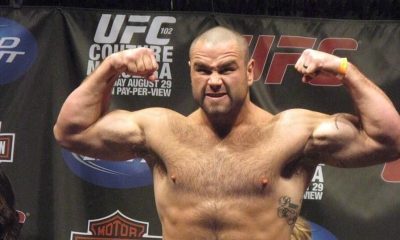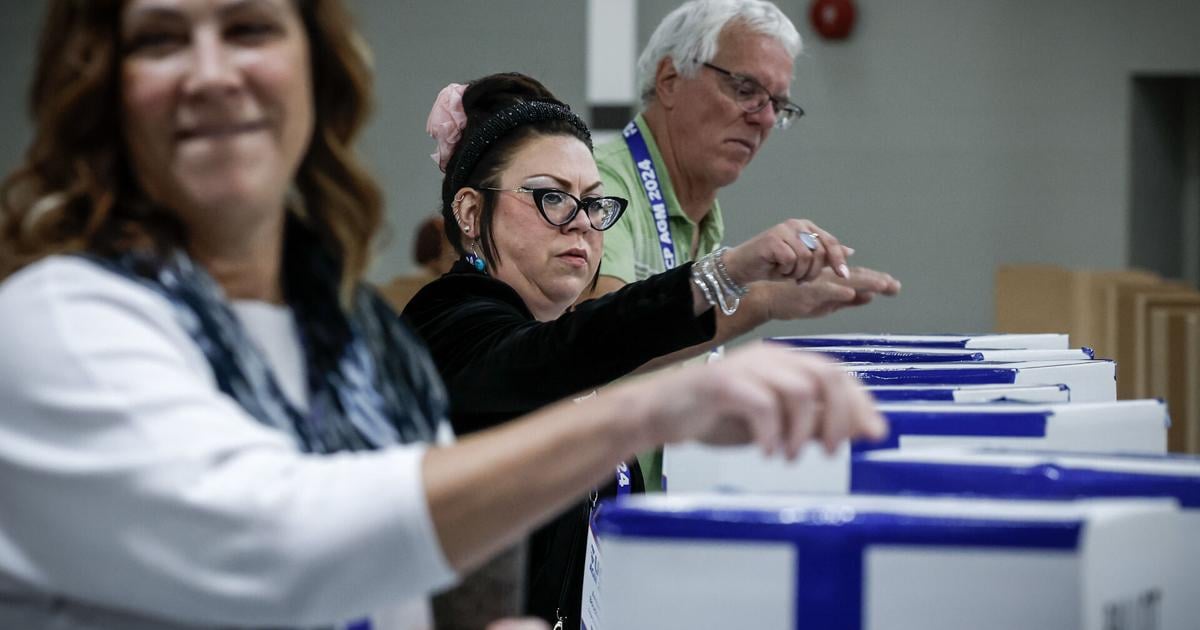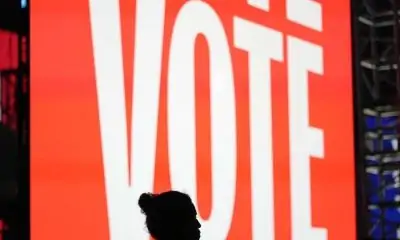Erin O’Toole, leader of the Conservative Party of Canada and leader of the Opposition (2020–), Member of Parliament (2012–) (born 22 January 1973 in Montreal, QC). Erin O’Toole served in the Royal Canadian Air Force and worked as a corporate lawyer before being elected the Member of Parliament for Durham, Ontario, in 2012. He served as Minister of Veterans Affairs from 2015 to 2019. In August 2020, he was elected leader of the Conservative Party of Canada and became the leader of the Opposition.
Early Years
Erin O’Toole was born in Montreal, the oldest of five children. When he was one year old, his family moved to Port Perry, Ontario, where he attended elementary school. His mother died of breast cancer when he was nine. Shortly afterward, his family moved again, this time to Bowmanville, where he graduated from Bowmanville High School.
Education and Military Service
At age 18, O’Toole attended the Royal Military College in Kingston. After graduating in 1995, with an Honours Bachelor of Arts in History and Political Science, he became a commissioned officer in the Royal Canadian Air Force. He served in Trenton and earned his wings at Winnipeg. He was then posted to 12 Wing in Shearwater, Nova Scotia. Serving with 423 Squadron, O’Toole was a tactical navigator aboard CH-124 Sea King helicopters. (See also Military Aviation.) He flew search and rescue missions and supported the Royal Canadian Navy with maritime surveillance and anti-submarine work aboard the frigate HMCS St. John’s.
In 2000, having risen to the rank of captain, O’Toole transferred to the Reserve Force for three years. While serving as a training officer with 406 Squadron, he earned a law degree at Dalhousie University. In Halifax, he met and married his wife, Rebecca. They have two children, Mollie and Jack.
Legal Career
After graduating with his law degree in 2003, O’Toole and his family moved to Toronto, where he specialized in corporate law. He worked at the large firm Stikeman Elliott and then at Procter & Gamble before moving to the firm Heenan Blaikie. He handled litigation cases and advised upper management regarding commercial, competition and environmental issues.

Public Service
An appreciation for the value of public service was instilled in O’Toole by his grandfathers, who both served in the Second World War, as well as his mother’s work with Vietnamese refugees. In 1995, O’Toole helped his father, John, in his successful campaign to become the Member of Provincial Parliament for Durham, Ontario. John O’Toole held the seat for 19 years.
While working in corporate law, O’Toole volunteered with the Royal Canadian Legion and the Rotary Club. He served on the board of the Royal Military College, helped initiate the Clarington Youth and Community Leadership Dinner, and raised money to build schools in Africa. He also co-chaired the River Runs Through Us project to protect fish habitat and build a recreation area on the Bowmanville Creek. O’Toole was the co-founder of the True Patriot Love Foundation; it raised millions of dollars to support veterans and their families. He also served as director of the Churchill Society, which encouraged education programs regarding parliamentary democracy. He led the effort to create a memorial to Canadians who died serving in Afghanistan and was an ambassador with the Vimy Foundation, which helped commemorate the 100th anniversary of the Battle of Vimy Ridge.
Member of Parliament
In 2012, O’Toole ran in a by-election to be the Member of Parliament for Durham. He won in a landslide with 50.7 per cent of the vote. (NDP candidate Larry O’Connor finished second with 26.3 per cent.) O’Toole’s election marked the first time a father and son had represented the same riding at either the provincial or federal level. From September 2013 to January 2015, he served as Parliamentary Secretary to the Minister of International Trade in Prime Minister Stephen Harper’s government.
In January 2015, he was appointed Minister of Veteran’s Affairs. The portfolio was challenging; at the time, veterans were suing the government primarily over cuts to their benefits. O’Toole worked to rebuild trust between veterans and the government. The veterans eventually lost the Equitas Society class action lawsuit in court.

2016 Leadership Contest
The Conservative Party lost the fall 2015 election, but O’Toole was re-elected. In another decisive victory, he received 45.1 per cent of the vote compared to 35.8 per cent for Liberal candidate Corinna Traill.
With Stephen Harper’s subsequent resignation as party leader, O’Toole made clear his desire to be named interim leader. However, he failed to win adequate support in the Conservative caucus. Instead, interim leader Rona Ambrose named O’Toole the party’s shadow cabinet critic for public safety.
In October 2016, O’Toole became one of thirteen Conservatives running for the party’s leadership. O’Toole presented himself as representing the party’s progressive wing and spoke often of the need for party unity. He finished third behind Maxime Bernier and the eventual winner, Andrew Scheer.
2019 Election
Andrew Scheer appointed O’Toole to his shadow cabinet as foreign affairs critic. In the October 2019 federal election, O’Toole won his seat; he secured 42.3 per cent of the vote compared to 32.2 per cent for Liberal candidate Jonathan Giancroce. Justin Trudeau and the Liberals were reduced to a minority government. Scheer was roundly criticized for failing to lead the Conservatives to what polls had predicted would be a victory. In December, after it was revealed that Scheer had used party money to help finance his children’s private school education, he resigned.

2020 Leadership Contest
In 2020, O’Toole again ran for the Conservative Party’s leadership. This time, his main rival was former Harper cabinet minister and the last leader of the Progressive Conservative Party, Peter MacKay. O’Toole abandoned many of the progressive ideas of his previous campaign. Instead, he said that he was the only candidate that was “True Blue” in representing conservative ideas. He ran on the slogan “Take Back Canada.” He said it meant taking the country back from the “tax and spend policies” of the Trudeau Liberals. His 50-page policy book emphasized job creation while pledging to end the carbon tax, defund the CBC, support the energy sector, and enforce mandatory sentences for crimes.
The onset of the global COVID-19 pandemic saw the leadership campaigns go virtual. Mail-in ballot counting was postponed until 23 August 2020. A malfunctioning mail opening machine cut many of the ballots so that the final tally was not known until 24 August at 1:00 a.m. O’Toole won 57 per cent of the votes on the third ballot to become the Conservative Party’s new leader and the leader of the Opposition.
Leader of the Opposition
O’Toole’s first months as leader were overshadowed by the dual crises of the pandemic and the resulting economic downturn. He worked to unite the party and to present it as a government-in-waiting. He also made efforts to open the party to groups that had sometimes complained about feeling unwelcome or ignored by the Conservatives. Those included francophone Quebecers, LGBTQ people, and those who feared that the Conservatives would place new limitations on abortion rights.

































